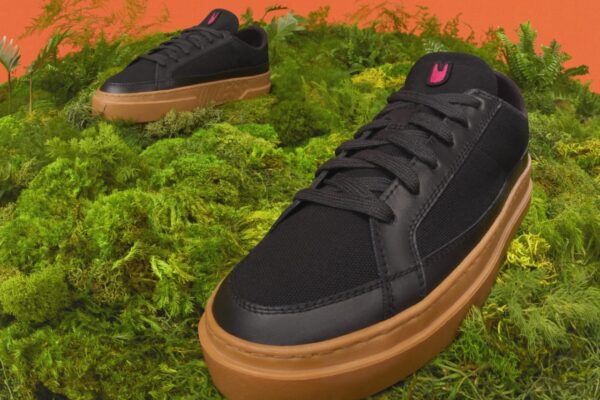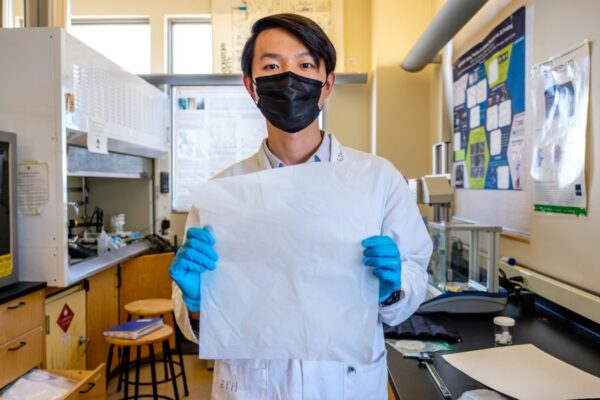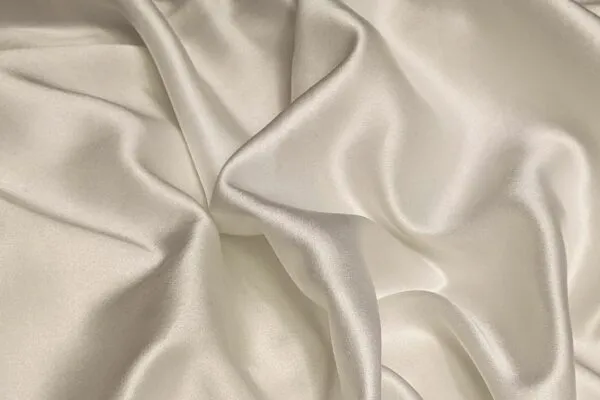Biomaterial Made From Banana Leaves can Replace Single-Use Plastic
The planet is choking on plastic and the global communities are struggling to find viable alternatives for it. The economies with large population need these solutions more than other countries. Take India for instance (with a huge populace) where the consumption of plastic reaches millions of tons per year and without any proper disposal most of it ends up in the oceans, disrupting the balance of the ecosystem.
In 2010, 11-year-old Indian boy, Tenith Adithyaa formulated the Banana Leaf Technology inspired by the dream to create a superior sustainable material to put an end to the environmental crisis due to plastic pollution.
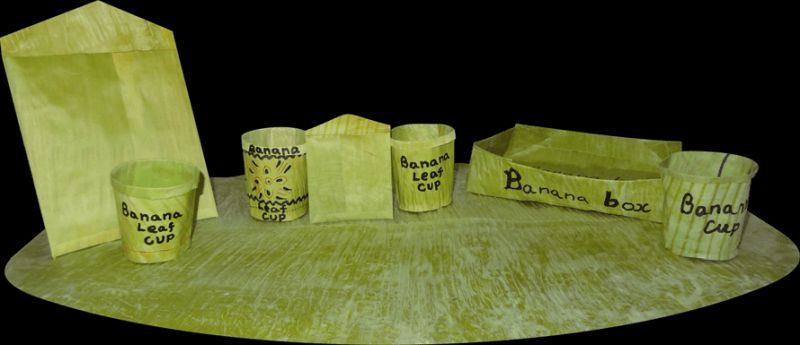
Image: Banana Leaf Technology
To achieve his goal, it was essential to preserve the leaves for a long term without using any chemicals. Through many trials, he created this technology in October 2010. With time, the technology advanced as a cellular enhancement that resulted in four years of research and development.
Adithyaa’s chemical-free preservation process changes the leaves’ structure so they retain their shelf life for three years. The process not only makes them durable for a certain time, but also resistant to high temperatures, improves flexibility, and prevents from bacterial or fungal growth.
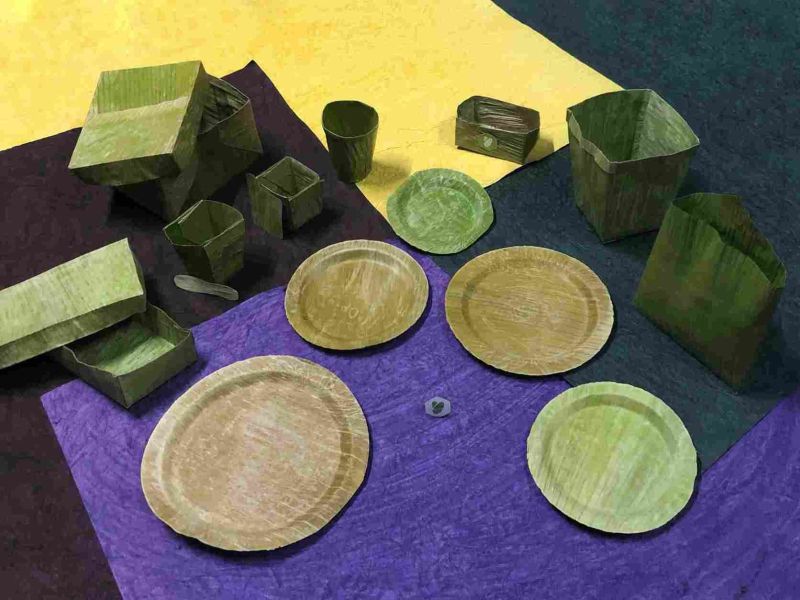
Image: Banana Leaf Technology
Currently, Banana Leaf Technology offers a range of 30 products with their preservation methods, including plates, cups, boxes, writing paper and envelopes. After living out their shelf life, these products can be used to feed animals or as fertilizers, as no chemicals have been used in the making process.
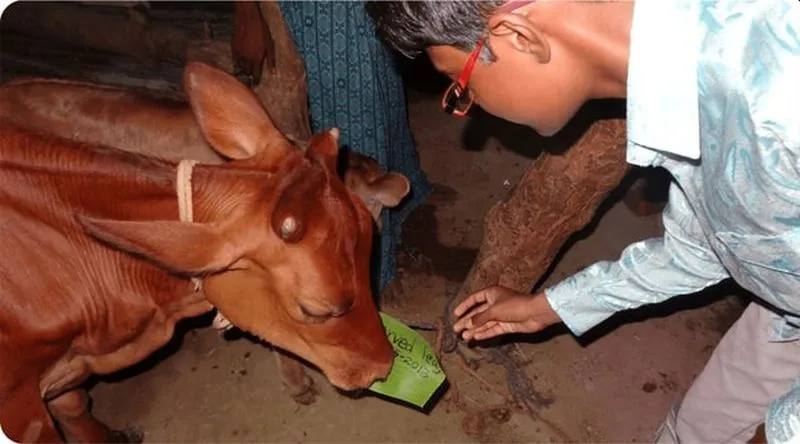
After using these chemical-free products can be fed to the animals / Image: Banana Leaf Technology
The technology is customizable and therefore other products can be expected to be developed in the future, such as natural packaging alternatives.
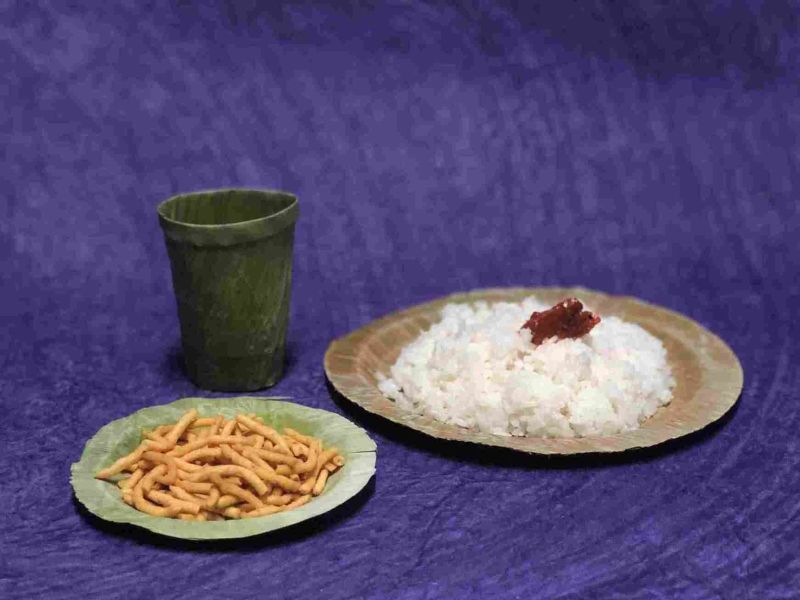
Zero-risk of plastic induced byproducts & toxins in foods and beverages / Image: Banana Leaf Technology
Using preserved banana leaf products decreases the risk of plastic leaking byproducts and toxins into foods and beverages. This innovative solution helps to reduce the damages to wildlife and reduces the burden on landfills.
It also eradicates the harmful gas emissions and provides a safe, biodegradable and sustainable alternative to single-use plastic.
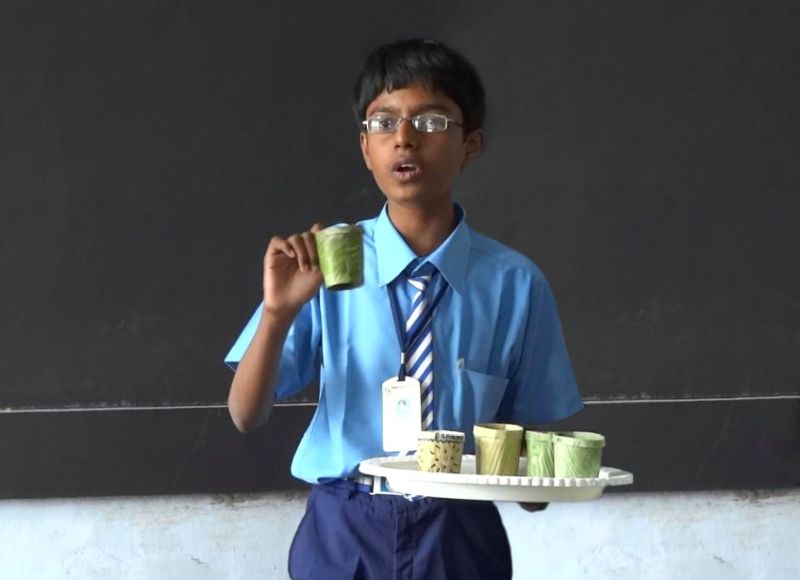
Tenith Adithyaa M demonstrating his invention / Image: Banana Leaf Technology
